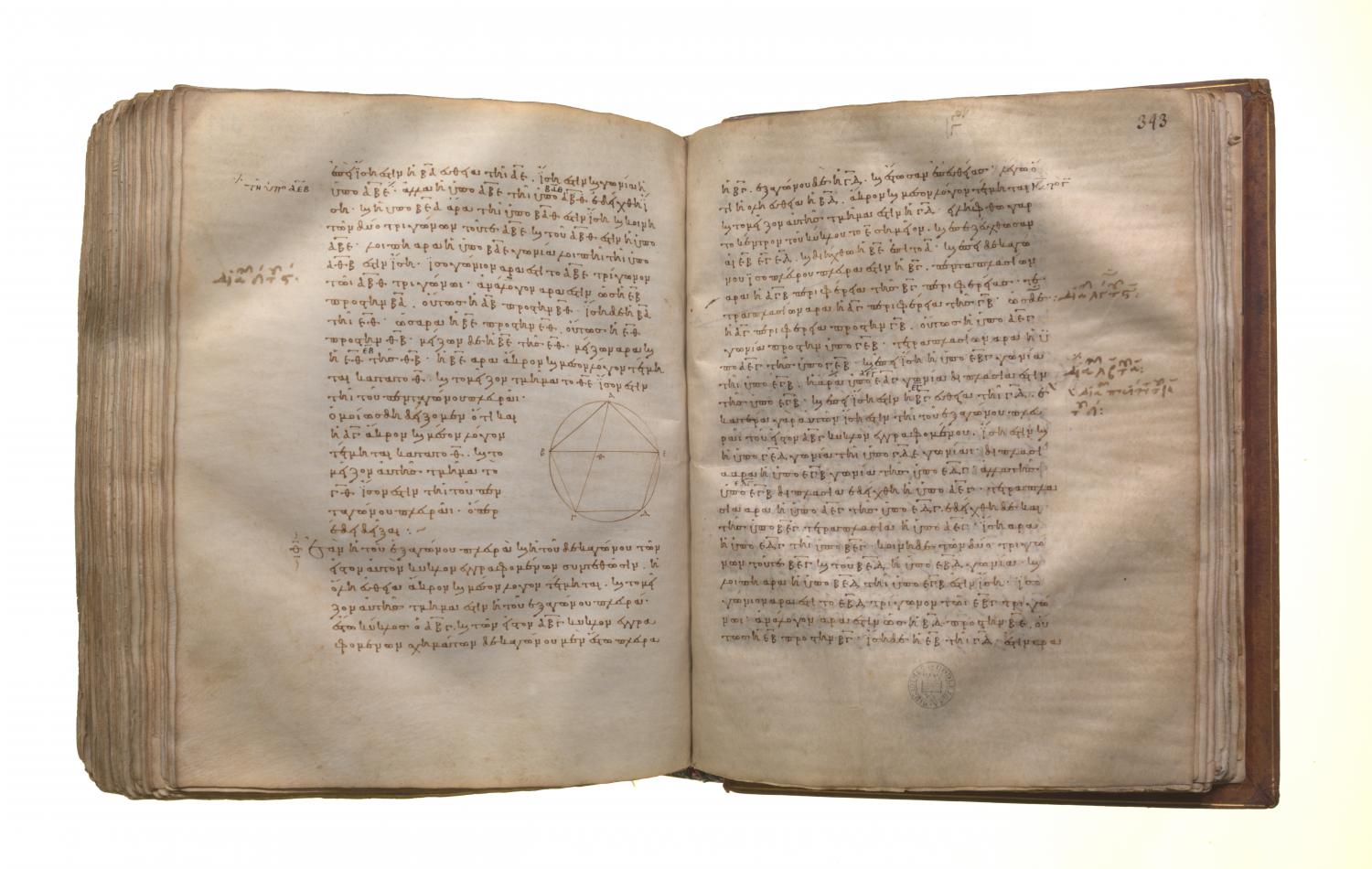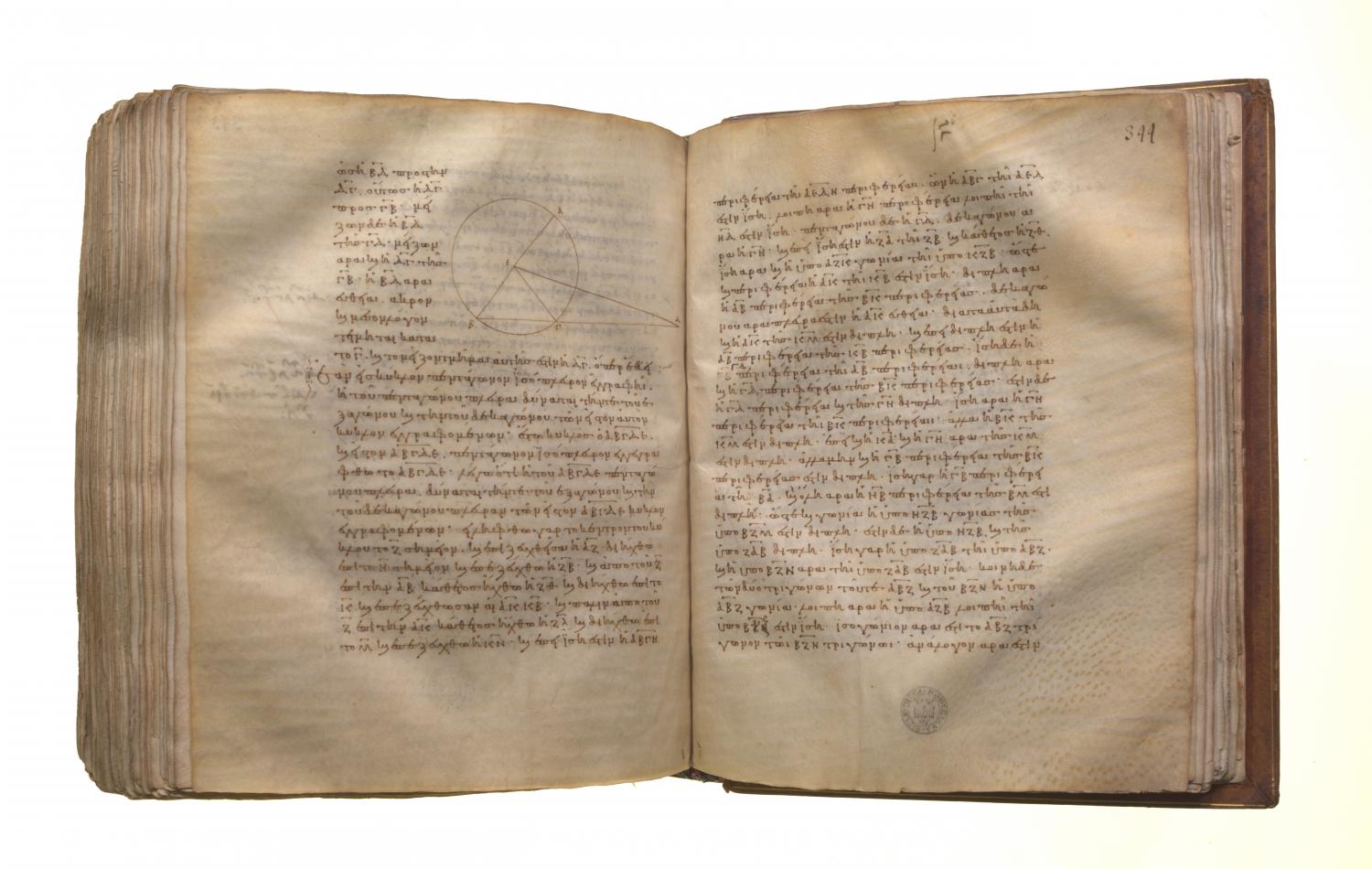Regular solids: Book 13 Proposition 9
Translations
If the side of the hexagon and that of the decagon inscribed in the same circle be added together, the whole straight line has been cut in extreme and mean ratio, and its greater segment is the side of the hexagon. Let ABC be a circle; of the figures inscribed in the circle ABC let BC be the side of a decagon, CD that of a hexagon, and let them be in a straight line; I say that the whole straight line BD has been cut in extreme and mean ratio, and CD is its greater segment. For let the centre of the circle, the point E, be taken, let EB, EC, ED be joined, and let BE be carried through to A. Since BC is the side of an equilateral decagon, therefore the circumference ACB is five times the circumference BC; therefore the circumference AC is quadruple of CB. But, as the circumference AC is to CB, so is the angle AEC to the angle CEB; [VI. 33] therefore the angle AEC is quadruple of the angle CEB. And, since the angle EBC is equal to the angle ECB, [I. 5] therefore the angle AEC is double of the angle ECB. [I. 32] And, since the straight line EC is equal to CD, for each of them is equal to the side of the hexagon inscribed in the circle ABC, [IV. 15, Por.] the angle CED is also equal to the angle CDE; [I. 5] therefore the angle ECB is double of the angle EDC. [I. 32] But the angle AEC was proved double of the angle ECB; therefore the angle AEC is quadruple of the angle EDC. But the angle AEC was also proved quadruple of the angle BEC; therefore the angle EDC is equal to the angle BEC. But the angle EBD is common to the two triangles BEC and BED; therefore the remaining angle BED is also equal to the remaining angle ECB; [I. 32] therefore the triangle EBD is equiangular with the triangle EBC. Therefore, proportionally, as DB is to BE, so is EB to BC. [VI. 4] But EB is equal to CD. Therefore, as BD is to DC, so is DC to CB. And BD is greater than DC; therefore DC is also greater than CB.

